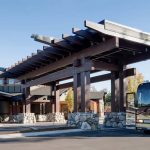How Blogging Can Increase Your Campground’s Website Traffic & Bookings

Why Blogging is a Game-Changer for Campgrounds
A well-designed website is essential for any campground, but if it lacks fresh, engaging content, you are missing out on one of the most powerful marketing tools available—blogging. Consistently publishing relevant, high-quality blog posts can increase website traffic, improve SEO rankings, and build trust with potential guests.
At Campground Consulting Group, we help campground owners maximize their online presence by using strategic content marketing that attracts new visitors and turns them into paying guests. This guide will explain how blogging can benefit your campground, improve search engine rankings, and drive direct bookings.
Why Blogging is Essential for Campgrounds
Blogging is not just about filling space on your website—it serves several key functions that can directly impact your bottom line.
1. Blogging Improves SEO & Helps You Rank Higher on Google
Search engines prioritize websites that publish fresh, informative content. A blog allows you to:
- Target specific keywords that potential guests are searching for, such as “best campgrounds near [your location]” or “RV camping tips.”
- Increase indexed pages, meaning more opportunities for your campground to appear in search results.
- Attract backlinks from other websites, improving your site’s domain authority and ranking.
A well-maintained blog can help your campground rank above competitors and ensure that when campers search for places to stay, they find your park first.
2. Blogging Builds Trust & Positions Your Campground as an Expert
Travelers are more likely to book at a campground that provides helpful, engaging content rather than one with just a static website. Blogging allows you to:
- Answer common questions about camping, RV travel, and amenities at your park.
- Showcase your expertise in outdoor hospitality.
- Create a personal connection with potential guests by providing valuable information.
When your blog offers solutions to campers’ questions, they begin to see your campground as a trusted resource—making them more likely to book a stay.
3. Blogging Keeps Your Website Active & Engaging
Google rewards websites that frequently update their content, and blogs provide an easy way to keep your website fresh.
- A stagnant website with outdated content loses ranking over time.
- Publishing blog posts signals to search engines that your site is active, helping it stay relevant.
- Frequent updates encourage return visits, keeping your audience engaged.
By consistently posting valuable content, your website remains a dynamic, authoritative presence in the campground industry.
4. Blogging Helps You Rank for Long-Tail Keywords
While short keywords like “RV parks” or “campgrounds near me” are competitive, long-tail keywords such as “family-friendly RV parks with lake access in Colorado” are easier to rank for.
- Blog posts allow you to target niche search terms that bring in highly relevant traffic.
- These searches often come from campers who are ready to book and looking for specific information.
- Writing blog posts that answer these queries can drive high-converting traffic to your website.
5. Blogging Provides Content for Social Media & Email Marketing
Every blog post you publish gives you content to share across multiple marketing channels.
- Social media – Share blog posts on Facebook, Instagram, and Pinterest to engage potential guests.
- Email newsletters – Use blog content to stay connected with past guests and encourage repeat bookings.
- Partnerships – Collaborate with outdoor brands, travel bloggers, or tourism boards by sharing useful content.
A strong content marketing strategy amplifies your reach beyond just search engines, bringing in more guests from various platforms.
How to Get Started with Blogging for Your Campground
Starting a blog might seem overwhelming, but consistency is key. Follow these steps to ensure your blog delivers results:
1. Identify Your Audience & Their Interests
Understanding your ideal guests will help you create content that resonates with them. Ask yourself:
- Are my guests families, retirees, solo travelers, or adventure seekers?
- What questions do they frequently ask before booking?
- What local attractions, amenities, or experiences interest them?
2. Focus on Evergreen & Seasonal Content
Your blog should include both evergreen topics (content that remains relevant year-round) and seasonal topics (content that appeals to guests during specific times of the year).
Evergreen Blog Topics:
- “10 Essential Tips for First-Time RV Campers”
- “How to Choose the Right RV Park for Your Trip”
- “The Benefits of Booking Directly vs. Using Third-Party Sites”
Seasonal Blog Topics:
- “Best Fall Foliage Camping Spots in [Your Location]”
- “Summer Camping Essentials for Families”
- “Top Winter Activities Near [Your Campground]”
3. Use SEO Best Practices
To maximize your blog’s reach, optimize posts for search engines:
- Include keywords naturally in your blog title, headings, and throughout the content.
- Write compelling meta descriptions that encourage clicks from search results.
- Add internal links to other relevant pages on your website.
- Use high-quality images with descriptive alt text to enhance search visibility.
4. Keep Posts Engaging & Easy to Read
No one wants to read a wall of text. Structure your posts for readability:
- Use short paragraphs and subheadings to break up content.
- Include bullet points and numbered lists for easy scanning.
- Write in a conversational tone that speaks directly to your audience.
5. Promote Your Blog for Maximum Reach
Once you publish a blog post, promote it across multiple channels to attract readers:
- Share on Facebook, Instagram, and Pinterest with engaging captions.
- Include blog links in email newsletters to past guests.
- Cross-promote with local businesses or influencers who cater to campers.
Blog Ideas for Campgrounds to Get Started
Here are some blog topics campground owners can use to start creating valuable content:
- “Best Family-Friendly Campgrounds in [Your Location]”
- “A Beginner’s Guide to RV Hookups & Campground Etiquette”
- “The Ultimate Packing List for a Weekend Camping Trip”
- “5 Mistakes First-Time Campers Make (And How to Avoid Them)”
- “How to Plan the Perfect Road Trip Through [Your Region]”
- “What to Expect When Staying at Our Campground: A First-Timer’s Guide”
- “How to Make a Campfire Like a Pro”
- “Local Events and Attractions Near [Your Campground]”
- “Top Tips for Camping with Pets”
- “How to Save Money When Booking an RV Park”
How Campground Consulting Group Can Help
At Campground Consulting Group, we help RV parks and campgrounds create content that attracts guests, improves search rankings, and drives direct bookings. Our services include:
- SEO-driven blog strategy tailored for campgrounds.
- Professional content writing to engage potential guests.
- Website optimization to ensure your blog delivers results.
- Social media integration to expand your blog’s reach.
If you are ready to turn your website into a high-traffic, booking-generating machine, our team is here to help.
Final Thoughts: Blogging is an Investment in Your Campground’s Future
Blogging is one of the most effective ways to attract more visitors to your website, improve your Google ranking, and drive direct reservations. A well-planned content strategy allows you to stand out from competitors, engage potential guests, and establish your campground as a trusted travel destination.
By regularly publishing informative and engaging content, your campground can:
- Increase search engine visibility.
- Provide value to campers planning their trips.
- Convert website visitors into long-term, loyal guests.
If you want to leverage the power of blogging but are unsure where to start, Campground Consulting Group is ready to help.
Let’s create a content strategy that grows your business.










